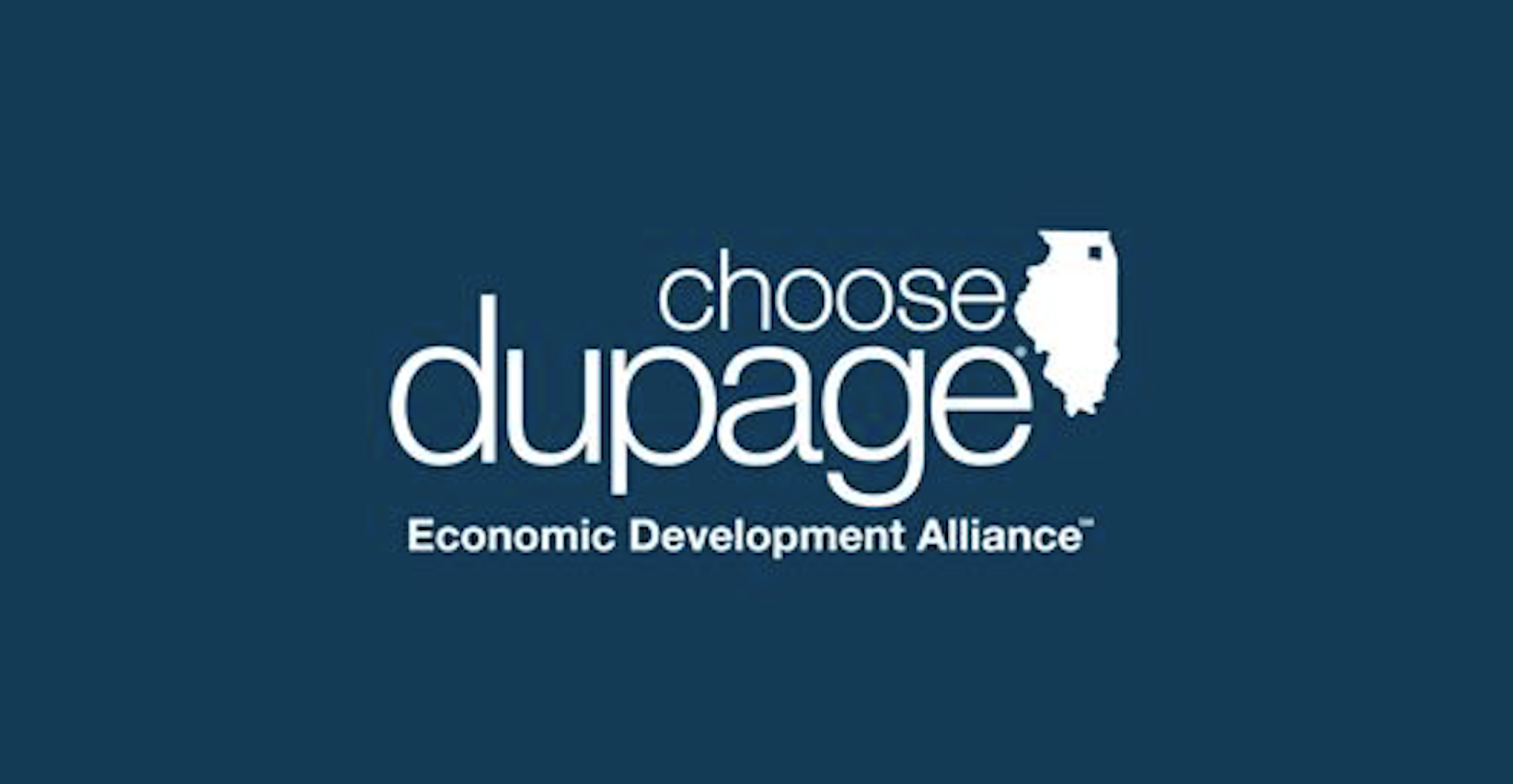Haga clic aquí para ver en Español.
Choose DuPage is committed to assisting and connecting businesses in DuPage County with the resources they need during this time. Below is a list of business and industry resources related to COVID-19.
For more information, questions, or if your business is in need of assistance and you are not sure where to turn, please contact Greg Bedalov at gbedalov@choosedupage.com or Lisa Miceli at lmiceli@choosedupage.com.
You can also join us on social media, where we are sharing information about what businesses and residents in DuPage County are doing to help, and demonstrate the #DuPageDifference.
Choose DuPage
Choose DuPage Board Members have volunteered their expertise to assisting businesses in DuPage County in the coming weeks. If you would like to be connected to an expert in banking, education, insurance, legal, or marketing, please contact Lisa Miceli, lmiceli@choosedupage.com.
View our message to the community from Choose DuPage President & CEO, Greg Bedalov.
DuPage County Health Department
The DuPage County Health Department has put together information for businesses on COVID-19, including guidance, food facility guidelines, water sampling, CDC guidance, education, outreach and more. Click here for details.
- If there is a confirmed or suspected COVID-19 case identified at your agency or business, please contact the DuPage County Health Department Communicable Disease and Epidemiology program at (630) 221-7553 (8:00AM – 4:30PM) or (630) 682-7400 after hours for consultation and next steps.
- For any questions or concerns about COVID-19 call (630) 221-7030.
- Updated Quarantine Recommendations for persons living, learning, or working in DuPage County can be found here (as of Dec 11, 2020).
Businesses that can provide respirators, ventilators, and personal protective equipment or other medical devices should contact DuPage County at oem@dupageco.org or click here for more information.
State of Illinois
- State of Illinois COVID-19 information and resources, including current Executive Orders issue by Governor Pritzker: Click here
- Illinois COVID-19 Hotline (800) 889-3931
- Illinois Department of Public Health COVID-19 Guidance and Resource Page: Click here
- Illinois Department of Revenue Taxpayer Resources (Employers): Click here
- Illinois Department of Employment Security (IDES) Information for Employers: Click here
- Illinois Emergency Child Care for Essential Workers Information: Click here
- State Treasurer’s announcement to make low-interest bridge loans available for businesses as soon as this week (3/23/20), click here. For future updates, click here.
- Hospitality Emergency Grant Program: Click here
- For additional resources for economic assistance, Click here
- For FAQ regarding Tier 3 resurgence mitigation, Click here
Illinois Small Business Emergency Loan Fund
DCEO and the Illinois Department of Financial and Professional Regulation (IDFPR) are establishing the Illinois Small Business Emergency Loan Fund to offer small businesses located outside the City of Chicago with fewer than 50 workers and less than $3 million in revenue in 2019, low-interest loans of up to $50,000. Click here for details. NOTE: DCEO and its lending partners are continuing to review the large number of submitted loan applications. To allow more time to process received applications quickly, they are temporarily suspending the acceptance of applications.
Business Interruption Grant Program (BIG)
This program is a $636 million program developed by Governor Pritzker and the Illinois General Assembly to provide economic relief for small businesses hit hardest by COVID-19. BIG leverages federal funding provided by the CARES Act to help offset COVID-19 related losses for Illinois small businesses. Funding may be used to help businesses with working capital expenses, including payroll costs; rent; utilities; and other operational costs. For more information, click here.
U.S. Small Business Administration (SBA)
For small business guidance and loan resources, click here.
Illinois Economic Injury Disaster Loan
The U.S. Small Business Administration is offering Illinois businesses low-interest federal disaster loans for working capital to small businesses suffering substantial economic injury as a result of the Coronavirus (COVID-19). For Information on SBA COVID-19 related assistance, including loans and other business relief, click here.
- Disaster loan assistance: Click here or click here
- Stay up-to-date: Click here
- Register for webinars on the Economic Injury Disaster Loans by clicking here. The trainings will cover program eligibility, use of proceeds, terms, filing requirements, and additional small business resources.
Paycheck Protection Program
- Eligible recipients may qualify for a loan up to $10 million determined by eight weeks of prior average payroll plus an additional 25% of that amount.
- Loan payments will be deferred for six months.
- SBA will forgive loans if all employees are kept on the payroll for eight weeks and the money is used for payroll, rent, mortgage interest, or utilities.
- Business owners can apply through any existing SBA 7(a) lender or through any federally insured depository institution, federally insured credit union, and Farm Credit System institution that is participating.
- Lenders may begin processing loan applications as soon as April 3. The program will be available through June 30.
- For information on the Payroll Protection Program, click here.
7(a) Borrower Relief
SBA will pay the principal and interest of current 7(a) loans for a period of six months, beginning with the first payment due on or after March 27, 2020. The SBA will also pay the principal and interest of new 7(a) loans issued prior to Sept. 27, 2020. Your lenders will be receiving more guidance on this program soon.
SBA Express Bridge Loans
Small businesses that currently have a business relationship with an SBA Express Lender can access up to $25,000 to bridge the gap while applying for a direct SBA Economic Injury Disaster loan. Contact your existing lender to see if they can participate in this program.
Contact Information for the U.S. Small Business Administration
Local staff is on-hand and ready to assist.
Coronavirus Aid, Relief, and Economic Security (CARES) Act
The programs and initiatives in the CARES Act that was passed by Congress are intended to assist business owners with whatever needs they have right now. When implemented, there will be many new resources available for small businesses, as well as certain non- profits and other employers. This guide provides information about the major programs and initiatives that will soon be available from the Small Business Administration (SBA) to address these needs, as well as some additional tax provisions that are outside the scope of SBA.
To keep up to date on when these programs become available, please stay in contact with your local Small Business Administration (SBA) District Office, which you can locate here.
Struggling to get started? The following questions might help point you in the right direction. Do you need….
- Capital to cover the cost of retaining employees? Then the Paycheck Protection Program might be right for you (see page 2 in the guide).
- A quick infusion of a smaller amount of cash to cover you right now? You might want to look into the Emergency Economic Injury Grant (see page 7 in the guide).
- To ease your fears about keeping up with payments on your current or potential SBA loan? The Small Business Debt Relief Program could help (see page 6 in the guide).
- Just some quality, free counseling to help you navigate this uncertain economic time? The resource partners might be your best bet, click here.
Download the Small Business Owner’s Guide to the CARES Act.
Internal Revenue Service (IRS)
The IRS has established a special section focused on steps to help taxpayers, businesses and others affected by the coronavirus. This page will be updated as new information is available, click here to view.
Tax Deadline Changed
The deadlines to file and pay federal income taxes are extended to July 15, 2020.
workNet DuPage Career Center
The workNet DuPage Career Center has funds available to cover the cost of retraining your staff so that their jobs can be repurposed and layoffs can be averted. For information on these grants, please contact Ron Schlager (630) 955-2037, rschlager@worknetdupage.org.
If you have to layoff staff, there are resources available free of charge for those individuals (including up to $10,000/person of funding assistance for necessary job training.) Affected workers should visit www.worknetdupage.org to access services.
Utilities
Industry Resources
Healthcare
Manufacturing
Retail
- Illinois Retail Merchants Association
- InStore provides communities with a platform to set up an online marketplace for your town. This platform gives local businesses the ability to sell their products on this marketplace in their own “store”, while providing a seamless shopping experience for the residents and customers. InStore will work with the communities to set up their individual marketplace at no-charge and will also work with retailers to set up their on-line “store” and upload their products, also at no charge. The fee structure is established upon the purchase of an item where 10 percent of every sale is taken, 3% of which goes back to the community. Click here to view a presentation provided for Choose DuPage.
Hospitality
- Hospitality Emergency Grant Program: To help hospitality businesses make ends meet in the midst of the COVID-19 pandemic, the Illinois Department of Commerce & Economic Opportunity is launching the Hospitality Emergency Grant Program with $14 million drawn from funds originally budgeted for job training, tourism promotion, and other purposes. Grant funds are available to support working capital like payroll and rent, as well as job training, retraining, and technology to support shifts in operations, like increased pick-up and delivery. Bars and restaurants that generated between $500K and $1M in revenue in 2019 are eligible for up to $25,000, and bars and restaurants that generated less than $500K in revenue in 2019 are eligible for up to $10,000. Hotels that generated less than $8M in revenue in 2019 are eligible for up to $50,000.
- DuPage County Health Department Food Facility Guidelines: Click Here
- Illinois Restaurant Association’s Employee Relief Fund: this fund provides one-time grants of $500 to support restaurant employees facing an unforeseen hardship due to COVID-19. Grants will help to cover basic living expenses such as rent, food and utilities. Click here for more information and to apply.
Additional Small Business Resources
Other Important Resources
This page is will be updated throughout the next few weeks. Check back for more information about DuPage business resources related to COVID-19.




